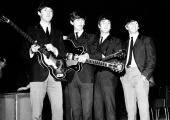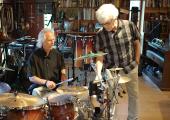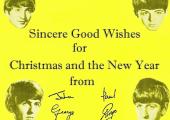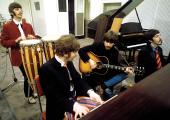La Damnation de Faust, Glyndebourne review – bleak and compelling makeover

Berlioz's Romantic Everyman seen in a sobering light
Mid-career, moving ever further away from composing for concert platform and church towards the stage, Berlioz found himself unsure where his take on Faust belonged. In the end he hedged his bets and titled it a "dramatic legend". Staging it as an opera, as he really wanted, requires the work of a theatrical plastic surgeon.






 Brahms: Clarinet Sonatas, Janáček: Sonata (arr. Brill) Shirley Brill, Jonathan Aner (piano) (Hänssler Classic)
Brahms: Clarinet Sonatas, Janáček: Sonata (arr. Brill) Shirley Brill, Jonathan Aner (piano) (Hänssler Classic)


